This is a four book series based on a vague form of magic that the practitioners call "groundwork2." In this particular universe the world is pretty clearly Earthlike, but it is unknown what century. As with her science fiction, Bujold is masterful at telling a story and giving a general feeling of the "time" it occurs in without ever actually numbering a year.
As such the story could be taking place in the far past, or in a post-apocalyptic future where most technology has been forgotten. Once the reader has entered this realm place matters not time.
"Ground", by the Bujold definition, is a sort of life-force that emanates from all things both living and non-living. In this "sharing knife" universe there are two classes of people who steadfastly keep themselves apart from one another; lakewalkers and farmers.
Lakewalkers
Lakewalkers are an apparently nomadic people who are aware of and work with "ground-force." They are self-appointed guardians of humanity who work against a force of evil called "the malice." A malice springs from the ground and almost immediately begins stealing the life-force or "ground" from all living things around it. In the process it is also capable of exerting a type of mind control on those living things. It’s only purpose seems to be to take over more “ground” as its power and mobility are expanding. In the process of this expansion a malice drains the life-force or "ground" in every larger areas around its epicenter.
Lakewalkers live in camps composed of makers; metal-smiths, leather-crafters, horse breeders, weavers, and so on. Then there are the "malice" scouts called patrollers. In this world the knife, and the bow and arrow are common, but gunpowder is unknown.
The makers supply the patrollers with all the tools required to dispatch malices. Patrollers are the mobile soldiers who seek out and destroy malices. Because lakewalker patrollers are aware of and have the ability to control "ground" they are able to approach a malice without immediately suffering the effects of mind-control; though if they remain near a malice long enough for it to penetrate a patroller "ground-shield" a take-over of thought is possible.
In the story line ten makers are required to support one patroller, thus a rather large support system is required.
Farmers
A "farmer" is a human being who is unaware and incapable of detecting or making use of "ground" though they themselves have that life force. They have the same "maker" abilities as the support network of lakewalkers. Farmers primarily settle into areas where they grow crops, raise livestock and in larger towns make glass, iron, steel, cloth, ink & paper. Farmers are clearly learning more and more and creating new technology as they settle and expand.
A Split Society
Lakewalkers set themselves apart from Farmers due to continued misunderstandings between the two groups. In this unnamed past, farmers have settled lands lakewalkers have formerly had free access to. They have also killed lakewalkers out of fear of their magic.
Lakewalkers, for their part, avoid farmers because farmers cannot control their "ground projection." This, in turn, causes a great deal of distrust from farmers because they know so little about lakewalkers.
As with real-life situations, knowledge abhors a vacuum and rumor, innuendo, and wild speculation fill farmer knowledge gaps. In a way the same is true for lakewalkers.


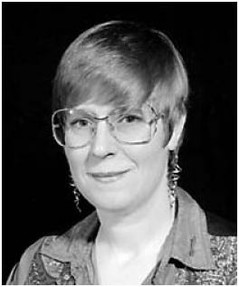 Ms. Bujold burst onto the writing scene in 1986 with her first published work "Shards of Honor," a science fiction work about a female astronomical survey star-ship captain named Cordelia Naismith.
Ms. Bujold burst onto the writing scene in 1986 with her first published work "Shards of Honor," a science fiction work about a female astronomical survey star-ship captain named Cordelia Naismith.



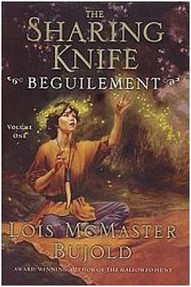 Fawn is a farmer girl running away from home due to an unexpected and unwanted pregnancy. It is not Fawn who does not want the child, though she is unfamiliar with motherhood and only just suspects that she is carrying a child. The father is betrothed to another and threatens to expose Fawn as a "loose woman."
Fawn is a farmer girl running away from home due to an unexpected and unwanted pregnancy. It is not Fawn who does not want the child, though she is unfamiliar with motherhood and only just suspects that she is carrying a child. The father is betrothed to another and threatens to expose Fawn as a "loose woman."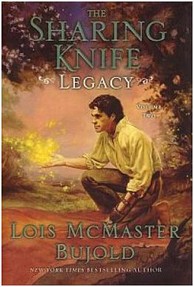 Legacy picks up where Beguilement left off. Published in 2007 the story follows Fawn and Dag on their trip to Hickory Lake. Dag has taken the last name of his bride, a lakewalker custom, and is now calling himself Dag Bluefield.
Legacy picks up where Beguilement left off. Published in 2007 the story follows Fawn and Dag on their trip to Hickory Lake. Dag has taken the last name of his bride, a lakewalker custom, and is now calling himself Dag Bluefield.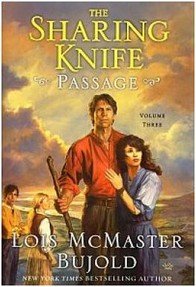 Published in 2008 “Passage” is the immediate follow-on to Legacy. In this book Fawn and Dag determine to travel south along Grace River toward the gulf of a great ocean.
Published in 2008 “Passage” is the immediate follow-on to Legacy. In this book Fawn and Dag determine to travel south along Grace River toward the gulf of a great ocean.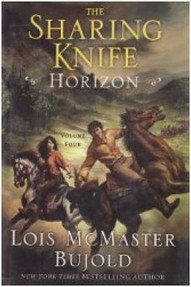 The final of the tetralogy, The Sharing Knife, “Horizon,” was published in 2009.
The final of the tetralogy, The Sharing Knife, “Horizon,” was published in 2009.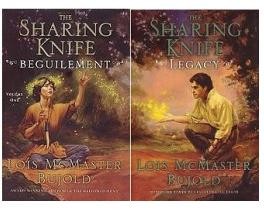 Julie Bell has illustrated at least one hundred (100) book and magazine covers since 1990. This includes album cover work for Meat Loaf (
Julie Bell has illustrated at least one hundred (100) book and magazine covers since 1990. This includes album cover work for Meat Loaf (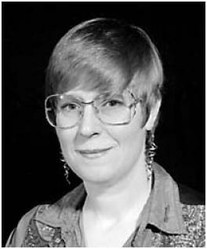

 Crêpes and Crêpe Disheson 09/14/2016
Crêpes and Crêpe Disheson 09/14/2016
 About Me - Liam Beanon 11/28/2014
About Me - Liam Beanon 11/28/2014
 About Ebolaon 11/08/2014
About Ebolaon 11/08/2014

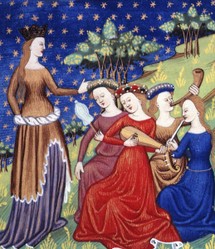
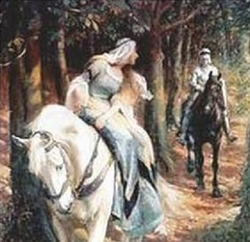
Comments
It sounds interesting. Thank you for the reviews!